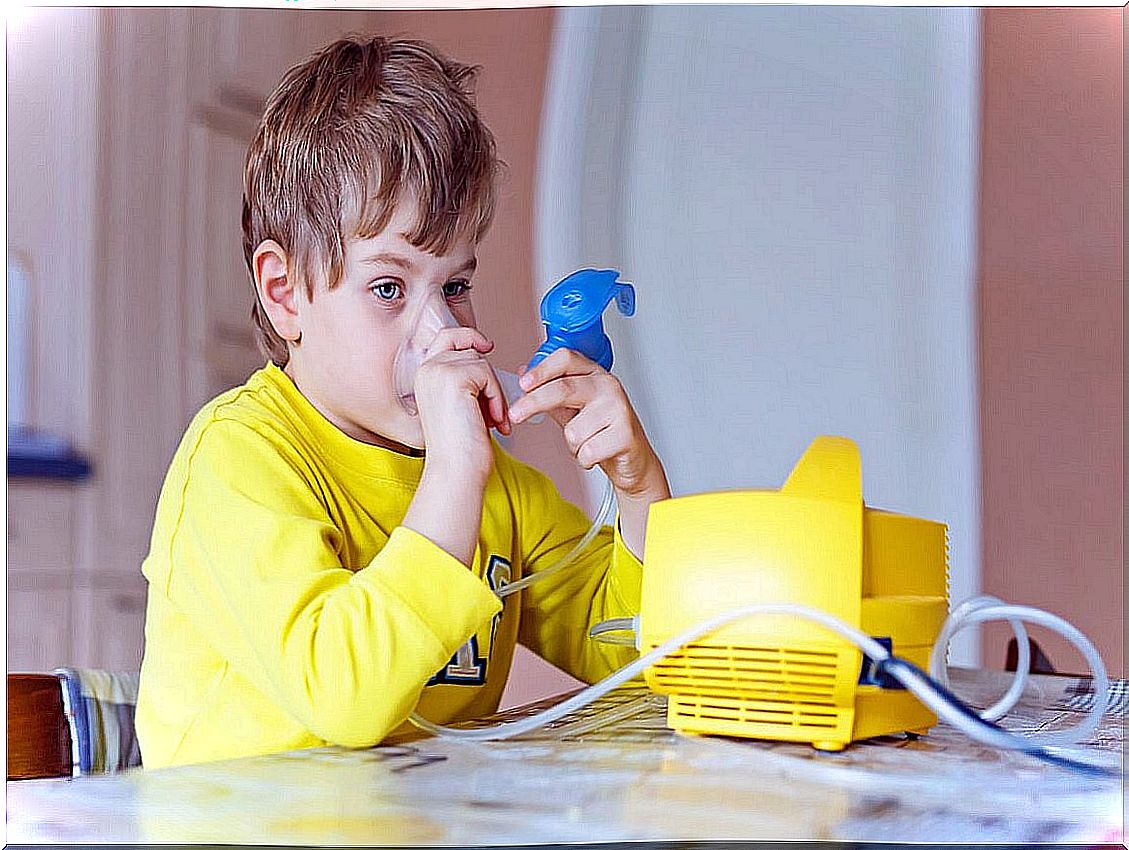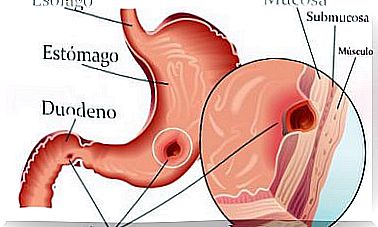Cystic Fibrosis In Children
Cystic fibrosis in children is an inherited disease caused by a genetic mutation. It affects different parts of the body, such as the digestive system and the lungs. This is because this gene plays an important role in the production of mucus, sweat, and other secretions.
This pathology has an incidence that varies from 1 in 3000 to 1 in 8000 live births. In most cases it has a great impact on the health of those who suffer from it. Therefore, in this article we explain everything you need to know.
What is cystic fibrosis?
As we just noted, cystic fibrosis is an inherited disease. A mutation occurs that alters a gene called CFTR that participates in the chlorine channels of cells. This gene is involved in the production of different secretions, such as digestive juices, sweat and mucus present in the respiratory system.
What happens is that these secretions become much thicker. This causes the ducts through which they run to become clogged. For example, the pathways inside the pancreas or parts of the lungs.
Hence, both the digestive and pulmonary systems are the most affected. However, sweat and reproductive organs are also impaired. In fact, most of the people with this disease are sterile.

Who can get this disease?
Cystic fibrosis is inherited recessively. That is, for the child to have the disease, both parents must be carriers of the mutated gene. Carriers are people who have one copy of the gene, but do not have symptoms.
Unfortunately, around the world almost 3 out of 100 people of Caucasian descent are carriers. In fact, it is much more common among Asians or African Americans. The truth is that the gene can undergo different mutations and each type of mutation determines the severity of the pathology.
Symptoms and Signs of Cystic Fibrosis in Children
Cystic fibrosis in children usually manifests itself in the first days of life. However, in some cases, the disease does not express symptoms until adulthood. This is because, depending on the type of mutation, there are different degrees of severity.
As we noted at the beginning, both the pulmonary and digestive systems are often affected. Most children have frequent respiratory infections. Mucus clogs the lung ducts and bacteria proliferate more easily.
Persistent cough, nasal congestion, and even recurrent sinusitis can be indicators of the disease. Another typical symptom is that cystic fibrosis in children prevents digestive enzymes from being secreted. In this way, the digestion of fats and proteins is altered.
Therefore, by not digesting nutrients well, growth and weight gain are impaired. The stool that they pass is usually very bad smelling and is more voluminous.
How is cystic fibrosis in children diagnosed?
Cystic fibrosis in children is diagnosed in the first days of life. A diagnosis can even be made during pregnancy. This is because, in some countries like Spain, screening is done at birth to detect metabolic diseases like this one.
In some cases, a test is required to help confirm the diagnosis. It is the so-called sweat test . It consists of checking the amount of salt in this liquid, since it is usually more concentrated than normal in patients with the disorder.
How is it treated?
The treatment of cystic fibrosis in children is complex. It depends on the severity of the case and what symptoms are expressed. In addition, in the same person, the circumstances vary, so the approach needs to be reviewed frequently and adapted to each situation.
In general, the treatment consists of two parts. First, the necessary digestive enzymes must be administered so that the child can digest correctly. Second, respiratory physiotherapy is required to improve the patient’s lung capacity.
Respiratory infections are frequent, so antibiotic treatment is almost essential. According to a study carried out at the Catholic University of Chile, azithromycin is the one chosen for cystic fibrosis in children.
Coping emotionally with cystic fibrosis in children

Cystic fibrosis in children has a great impact, not only on their lives, but also affects the entire family unit. According to an article written at the Hospital Universitario de La Princesa:
For this reason, it is important that both affected children and their families have sufficient psychological support. The ideal is to try that they have a life as normal as possible and that they learn to manage the pathology.
According to a study by the Inter-American Psychological Society, parental overprotection is related to lower adherence to treatment. Thus, a balance must be sought and sufficient resources provided to deal with the fear that the situation produces.
Cystic fibrosis in children is serious
This inherited disease requires both parents to be carriers. It must be treated in a multidisciplinary way. Above all, it is important that these children and their families have sufficient psychological support to deal with the situation.
It is not something simple far from it. We are faced with a difficult problem to tackle that requires several professionals and various specialties. Hospitalizations are not infrequent and the economic demand is not less for families. Both medical and social support are key.









